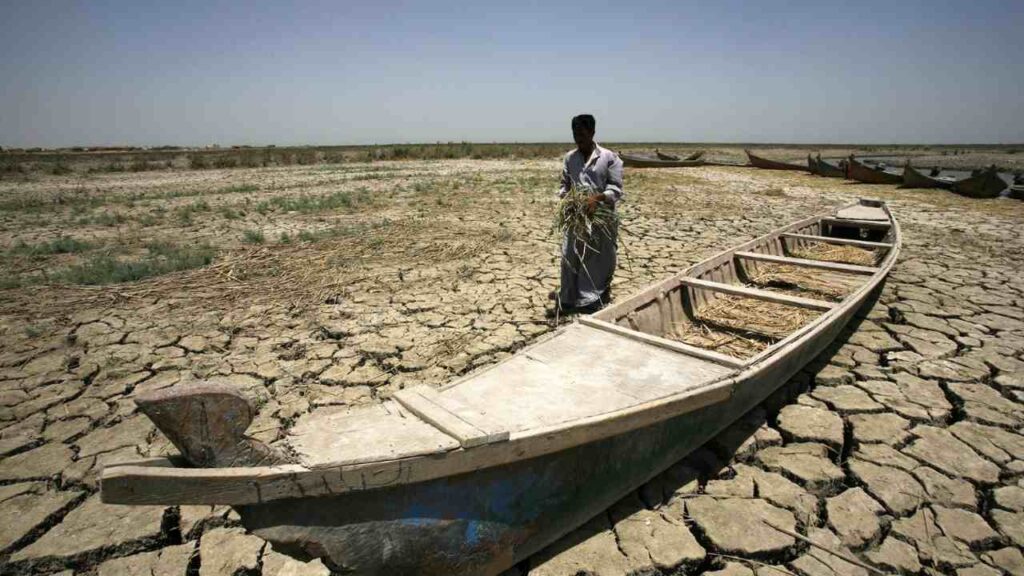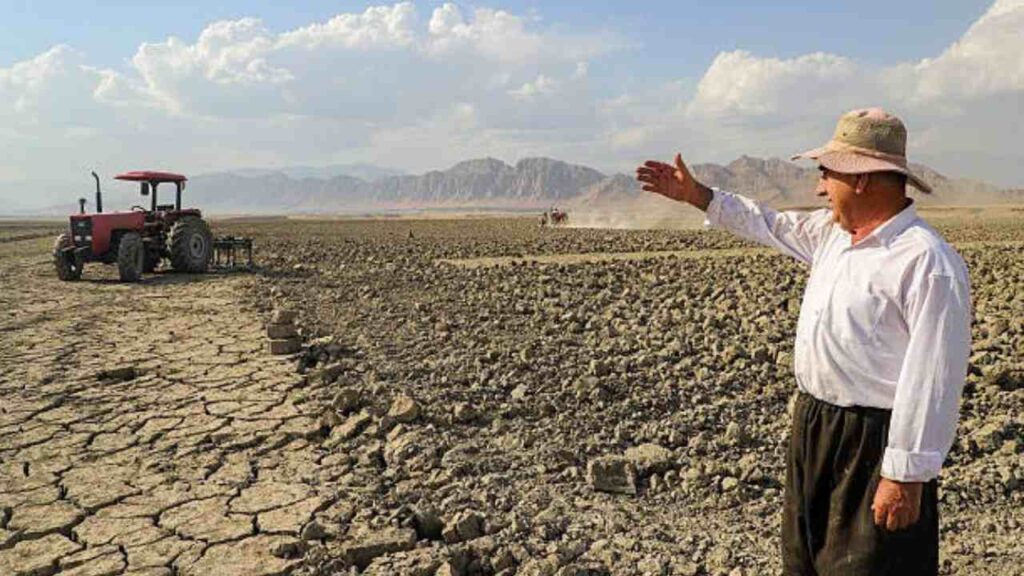A Quiet but Devastating Crisis
While wars occupy the headlines in the region, Iraqis are grappling with a less visible yet equally destabilizing crisis: a severe water shortage. Climate change, upstream neighbors cutting water flows, and ineffective leadership have left the country, historically known as the “Land of the Two Rivers,” struggling to manage its most vital resource.

The National Disaster Unfolds
This water scarcity is not just a crisis; it’s a catalyst for internal tensions, leading to displacement, worsening rural poverty, public health crises, and unrest in fragile communities. Iraq is experiencing its lowest water reserves in over 80 years, plummeting from approximately 18 billion cubic meters last year to just around 10 billion today. The consequences are stark and widespread.
Displacement and Health Issues
In Dhi Qar, over 10,000 families have been displaced as rivers and marshes dry up. In Basra, rising salinity and pollution have triggered a surge in water-related illnesses. Protests erupt across various cities, with residents demanding solutions as some struggle with water shortages lasting over a month. The crisis also jeopardizes food security, prompting the Minister of Water Resources to suspend September farming plans, including wheat cultivation.
Upstream Pressures Complicate the Crisis
Iraq’s water crisis is exacerbated by upstream restrictions and domestic neglect. Major dams constructed by Turkey and Iran have sharply reduced river flows. The Baghdad government has struggled to respond effectively, hindered by corruption and political self-interest. Internal rivalries have left Iraq without a coherent strategy to secure its water share.

The Role of Neighboring Countries
Turkey’s Southeastern Anatolia Project (GAP) and Iran’s diversion projects have significantly impacted Iraq’s water supply. Key Turkish dams like the Atatürk and Ilisu have restricted flows, while Iranian projects have redirected water from tributaries feeding the Tigris. Despite signed agreements, upstream countries exploit Iraq’s political instability for their advantage.
Governance Gaps and Internal Failures
In response to worsening conditions, the Iraqi government has announced measures like constructing rainwater-harvesting dams and advancing a seawater desalination project. However, these actions often come too late and lack sustainability due to corruption, policy inconsistencies, and negligence.
Ineffective Infrastructure Management
Corruption and political interference have stalled critical water infrastructure projects. In Basra, desalination initiatives have faced delays and disputes, leaving residents dependent on failing water networks. Past crises have led to temporary measures rather than long-term solutions, as seen in previous emergency sessions in Parliament.
Policy Recommendations for a Sustainable Future
To address the crisis, Iraq must implement reforms at both domestic and regional levels. Establishing a national water diplomacy body is crucial for effective negotiation and coordination. Infrastructure rehabilitation and modernizing irrigation systems should be prioritized to reduce wastage and improve efficiency.
Engaging International Mediators
Regionally, Iraq should engage trusted international mediators, such as the United Nations, to facilitate binding agreements with Turkey and Iran. Joining the UNECE Water Convention in 2023 offers an opportunity to leverage international legal frameworks in negotiations.
Conclusion: A Test of Governance
Iraq’s water crisis transcends environmental issues; it is a governance challenge. The 2018 Basra crisis highlighted how environmental neglect can escalate into public health emergencies and political distrust. Failure to act will not only result in lost water but also erode public trust and destabilize the nation. Addressing this crisis requires binding agreements, stronger coordination, and investment in infrastructure to ensure that governance, not geography, dictates Iraq’s water future.






